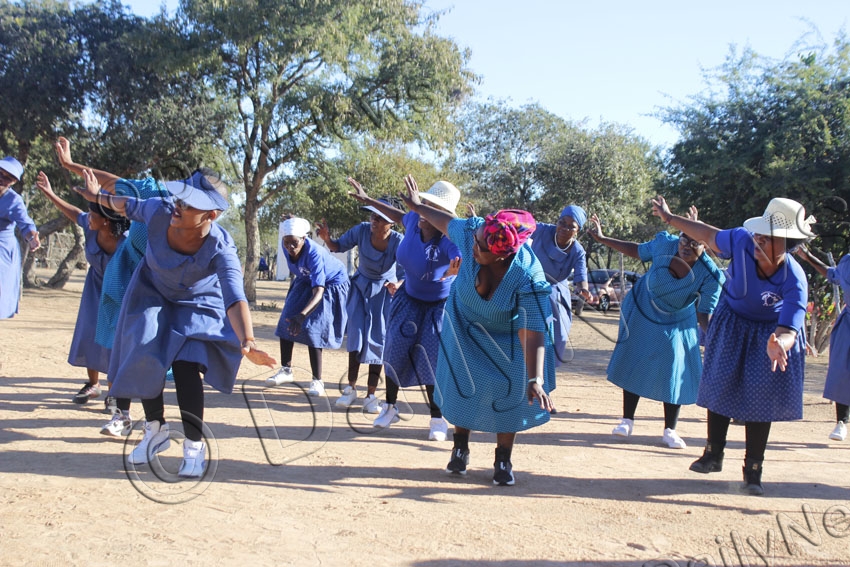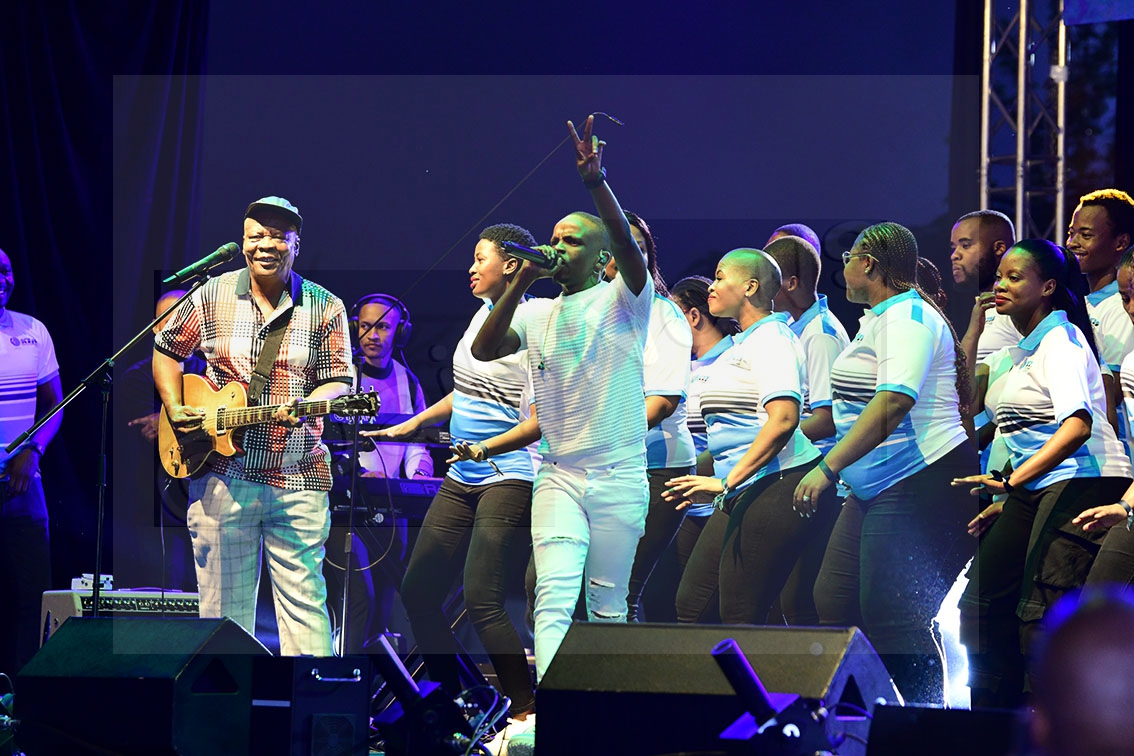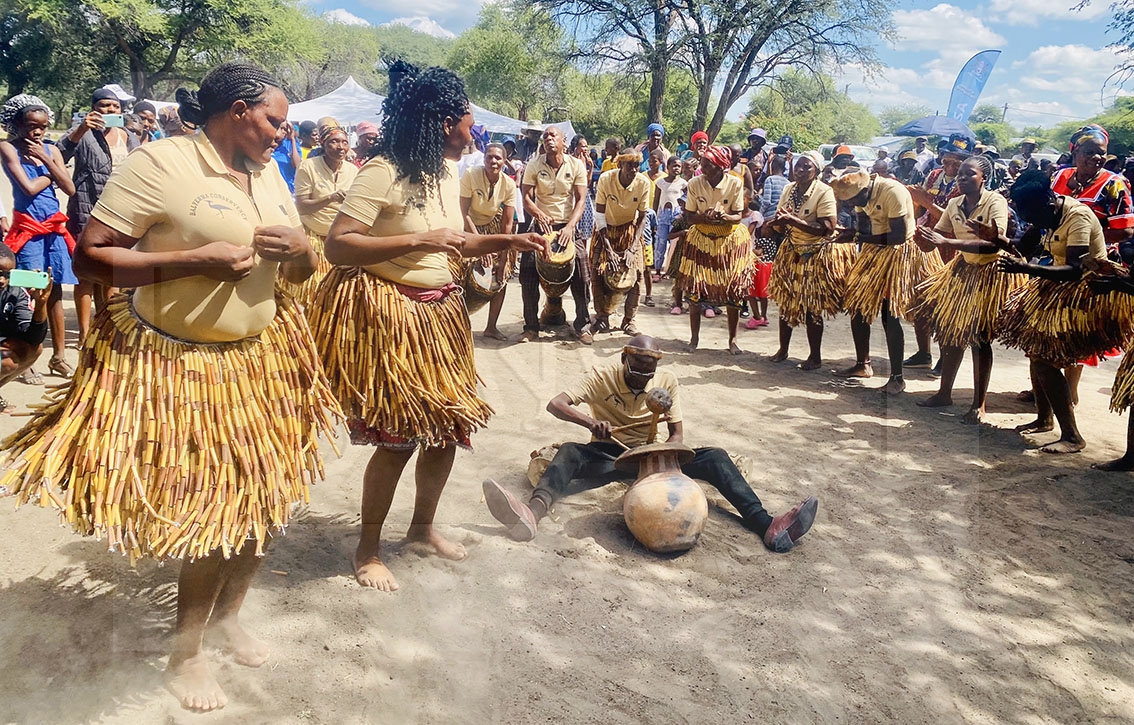Makgatlheng choir celebrates 24 years
05 Jun 2018
Makgatlheng choir recently celebrated 24 years of existence. They have become one of the biggest names in the Dikhwaere music cycles, a genre that has become synonymous with Bakgatla-ba-ga-Kgafela in the Kgatleng District.
The choir that boasts of deep rooted Sekgatla culture in their music composition has vowed to stick to what makes them unique as a tribe, promising to preserve their culture through this music.
Speaking at the celebrations, one of the founders of Makgatlheng choir, Olefile Letsholo said the choir was formed in 1994 by people from Dikgokonyeng lands and TM choir.
“Interestingly, the first members of the choir were youth who in their formative years would gather at a small water stream called Mogobe wa Ralechwega when tending to livestock. They will sing until sunset and the habit which will later on land them in trouble as they will get a beating for late arrival,” he said.
According to Letsholo, after some time the two groups merged and the choir was named Cameroon.
He said the choir ended up securing a piece of land by the famous Mosetlha tree which was used as a meeting point by people around Ditlhokwe area.
They choir was later renamed Makgatlheng from the word Makgatlhanelo denoting a meeting place.
Letsholo explained that what sets them apart was the rhythm of their songs that are rich in Setswana language inclusive of idioms and proverbs.
Again, it is the melody of dikhwaere tsa Sekgatla that always leaves the audience begging for more every time they get on stage.
Although these choirs are mostly known for entertainment, Makgatlheng choir has evolved beyond that.
Today the choir raises funds through various platforms, from Christmas festivals to selling music.
The choir has also formed a burial society to assist the members with funeral packages.
Bathusi Losolobe, a representative from Palm Consult Company which deals with intellectual property rights, cautioned the group to guard their intellectual property and rights jealously.
He educated them on the Copyrights and neighbouring rights particularly on the Copy Right and Neighbouring Rights Act Cap 68:02 which defines copyright in relation to work as an exclusive right.
He further highlighted that section 23 elaborated on the position of intellectual property rights owners defining them as the rights of those who assist right holders to communicate their works to the public.
“Such rights include the rights of performers in their performances, the rights of producers of sound recordings in their sound recordings and the rights of broadcasting organizations in their radio and television programmes,” he said.
Losolobe said it was time people in the creative industry did away with some of the inherent African values such as sharing everything including intellectual property.
He said now that there was intellectual property rights in place authors needed to know that they had the authentic right of their products and whoever wanted to use them must first seek permission from the author.
He also expressed concern that dikhwaere were slowly diminishing attributing this to poor production which compromised quality.
However, some members of the choir revealed that dikhwaere as a form of entertainment was part of who they were.
In the past some people shunned them but nowadays they have a big following attracting people from all walks of life.
As a result, during Christmas holidays people long to go home to be part of the festivities. ENDS
Source : BOPA
Author : Lindi Morwaeng
Location : MOCHUDI
Event : Interview
Date : 05 Jun 2018







